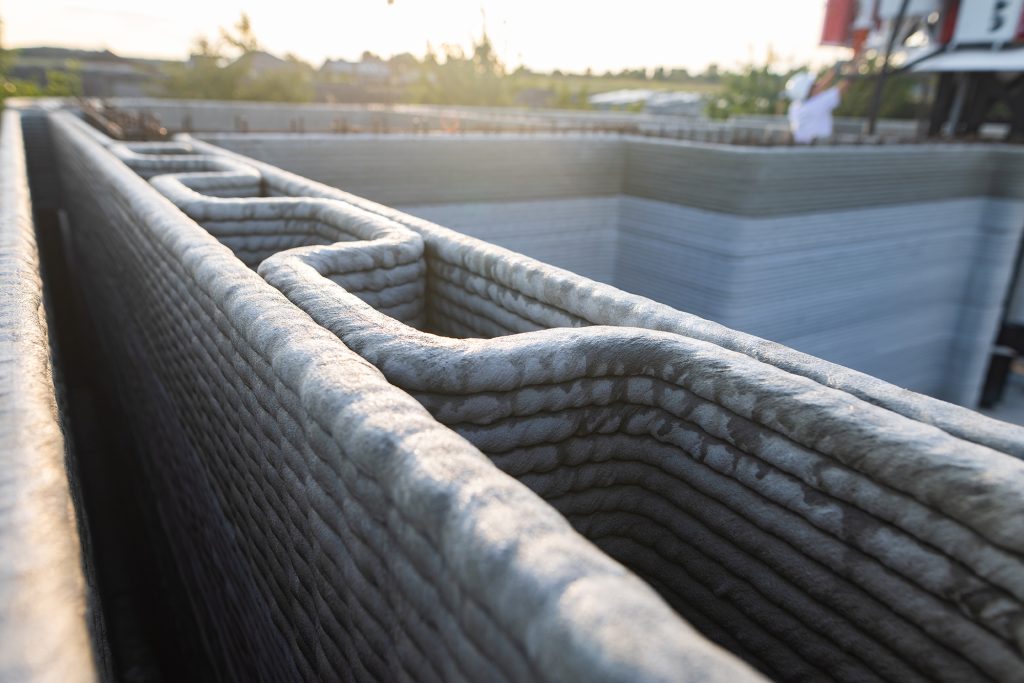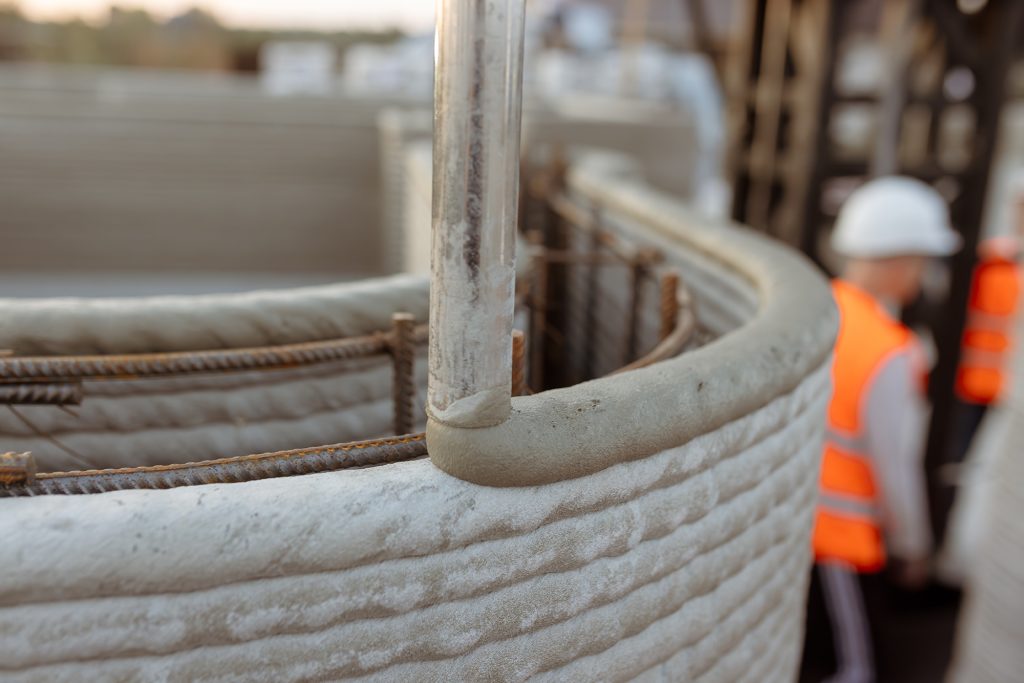Industrialized Construction:
The Future is Built Smarter
At UF’s Herbert Wertheim College of Engineering, the future of construction is happening now. With the arrival of the country’s largest and most advanced 3D construction printer, we are transforming construction solutions into smart and sustainable infrastructures, big and small. From smart residential construction to resilient infrastructure, we are redefining what’s possible in design and engineering.

The Power of AI and Robotics in Construction
UF’s new COBOD BOD3 printer isn’t just a machine, it’s a game-changer. With 27,000 pounds of precision engineering, this third generation 3D construction printer enables rapid, cost-effective and sustainable construction like never before. Through groundbreaking synergy between artificial intelligence, machine learning, data analytics, and smart manufacturing, Gator Engineers learn to harness the power of this cutting-edge technology that prints structures by layering rows of wet concrete, guided by a robotic arm that moves back and forth to form walls and intricate designs, layer by layer.
From sea walls to homes, industrialized construction is shaping the future of construction with smart automated building power and far less material waste. With homes reportedly being built in 10 weeks, it redefines the quantity and quality of how we build and live.
A Hub for Future-Ready Innovation
The Industrialized Construction Engineering program at UF is integrating robotics, digital twins and extended reality to drive progress in:
- Resilient Infrastructure — Building homes and structures that withstand environmental challenges.
- Automated Prefabrication — Combining 3D printing with mobile and industrial robotic systems.
- Sustainable Materials & Design — Reducing waste while enhancing building quality.
The impact is clear: UF is pioneering construction that’s faster, safer and more efficient.


Bridging Innovation & Industry
UF is committed to addressing the critical needs of a rapidly changing landscape in building and construction. Backed by a $2.5 million strategic funding and partnerships with industry leaders including Autodesk and COBOD International, we are closing the gap between academic innovation and real-world application, building faster, smarter, and more sustainably than ever before.


